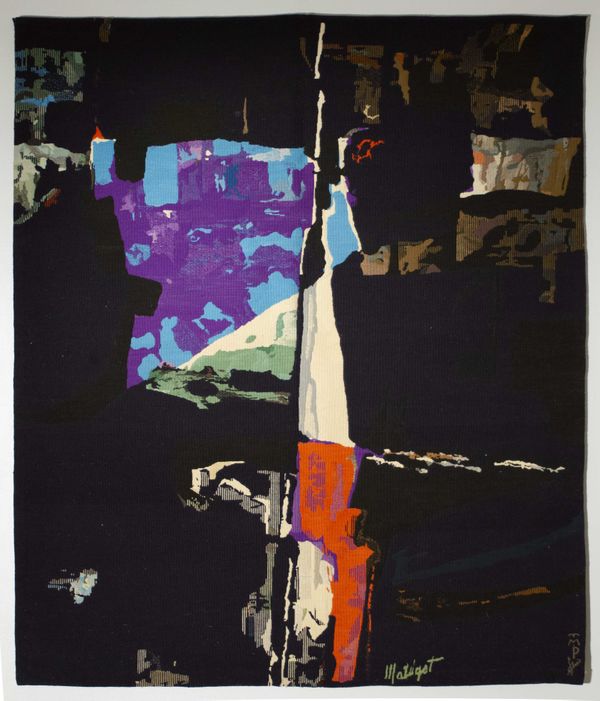Mathieu Matégot
(Hungarian/French, 1910-2001)
Mathieu Matégot was a Hungarian-born French designer, architect and artist. After studying at Budapest's School of Fine Arts in 1929, Matégot travelled across Italy and the USA until settling in Paris in 1931 where he worked as a set designer, window dresser and tapestry maker.
Matégot volunteered for the French resistance at the start of the Second World War, only to be captured by the Nazis. A dreadful fate for most, however, it was during his time as a prisoner of war that the artist discovered metalworking techniques (such as Rigitulle) which he later patented and became renowned for. Upon his release, Matégot was awarded French citizenship.
After the war, the artist's interest in tapestry was renewed after being introduced to contemporary tapestry revivalist, Jean Lurçat. However, in order to make ends meet, Matégot pursued furniture design; he established a workshop in Paris and dedicated his time to translating the groundbreaking metal techniques into popular handcrafted objects.
In 1959, Matégot abandoned furniture design and focused exclusively on his passion for abstract tapestries. He continued his work as a pioneer of French Modern tapestry until his death in 2001.

